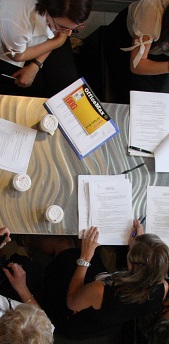 Become a Professional Journalist
Become a Professional Journalist
Being paid to write things is a dream shared by many. It can be an exciting profession, but before embarking on a substantial course of study whit us or anyone else; be sure you fully understand what is involved. Some people simply don't succeed perhaps because the dream is not the same as the reality; or maybe they are simply not the right personality. This job is not just about writing well: it also requires you to be able to write fast, work under pressure. You also need to be prepared to write what an employer wants, which is not always the same as what you want. This is the reality of journalism. If you can get past these considerations, and with a bit of luck, you may be able to forge a serious career.
Dan Read, a student on our Diploma in Journalism course has recently had an article purchased for publication. He said of the course - "I feel that the course has given me the tools and confidence necessary to make this possible."